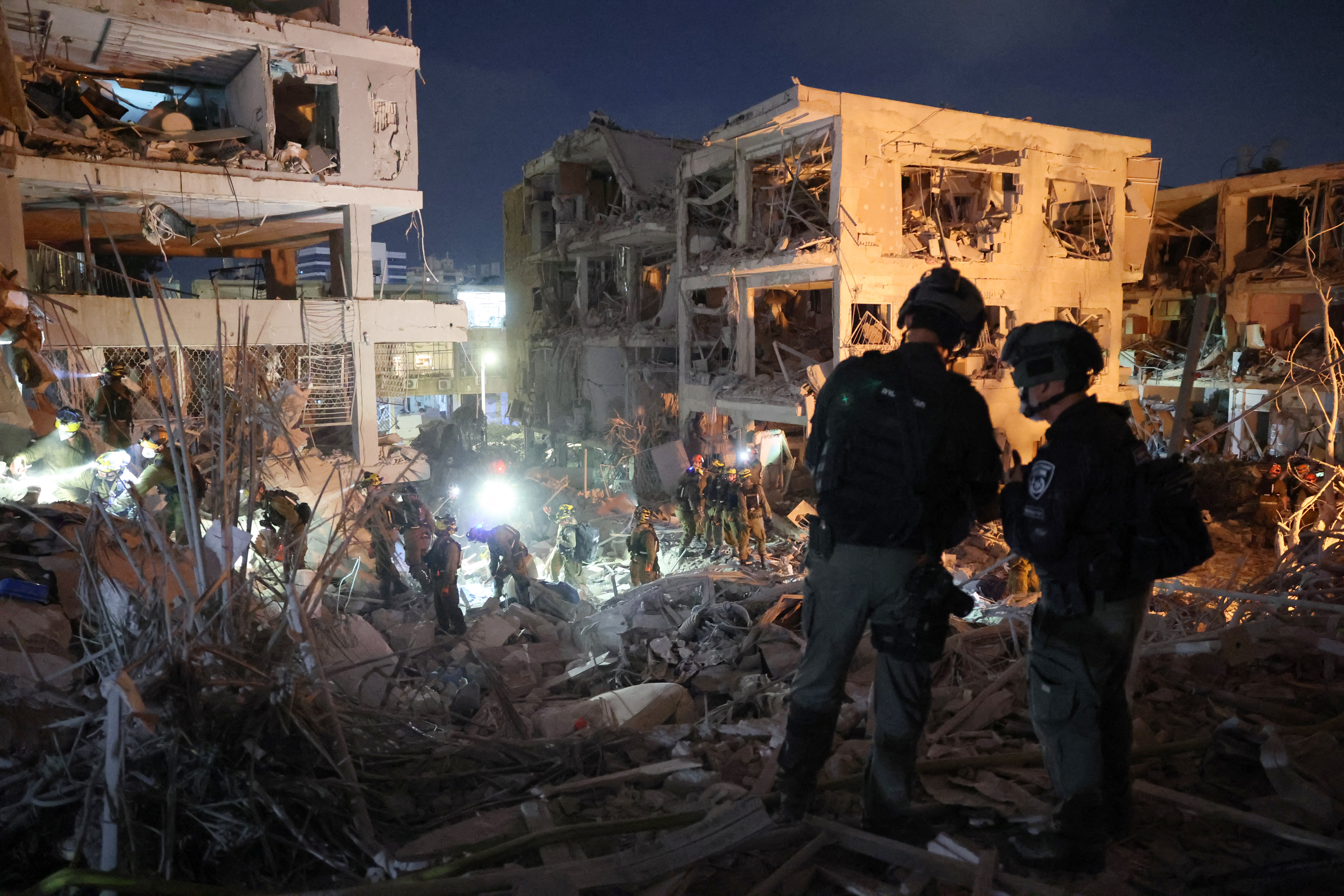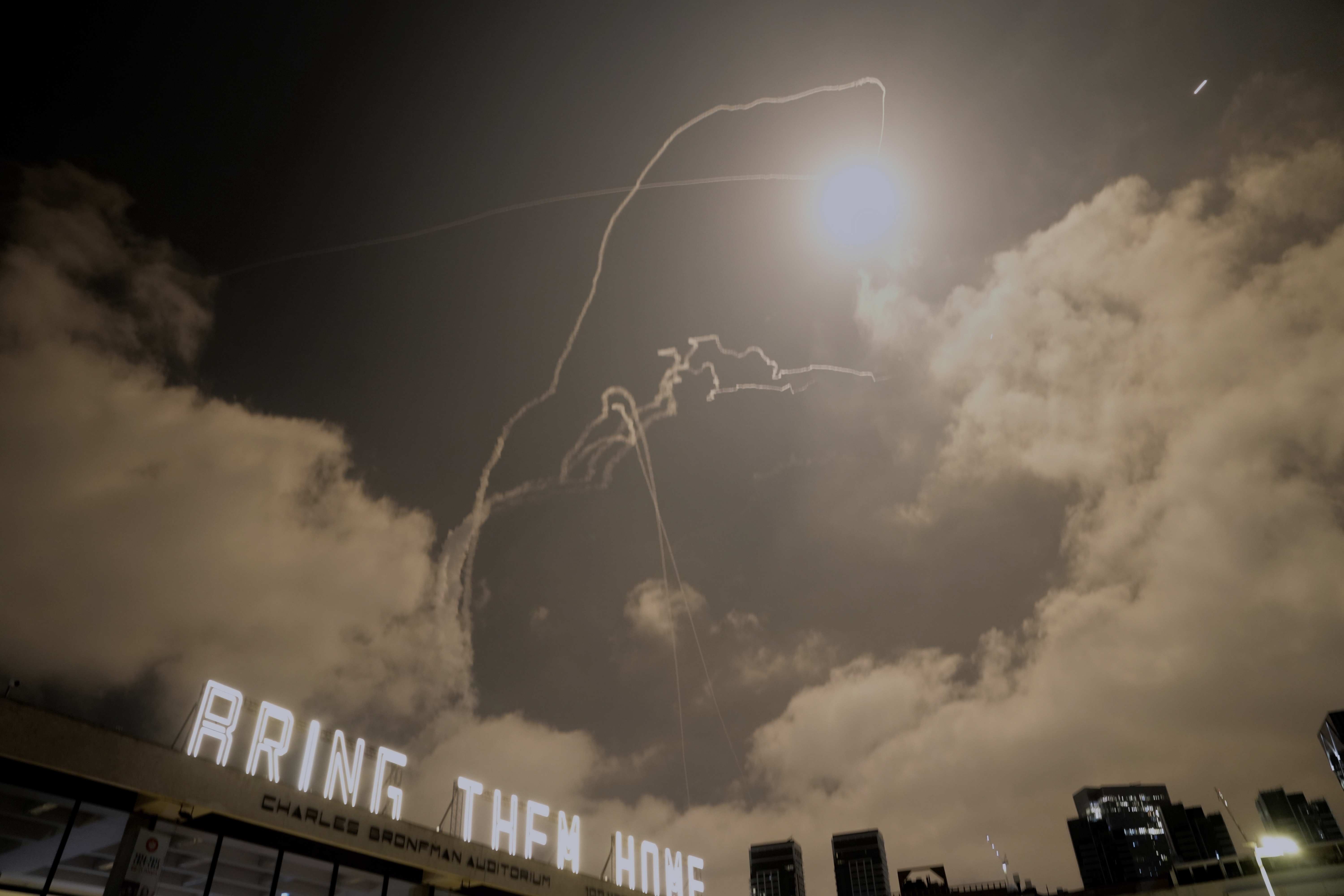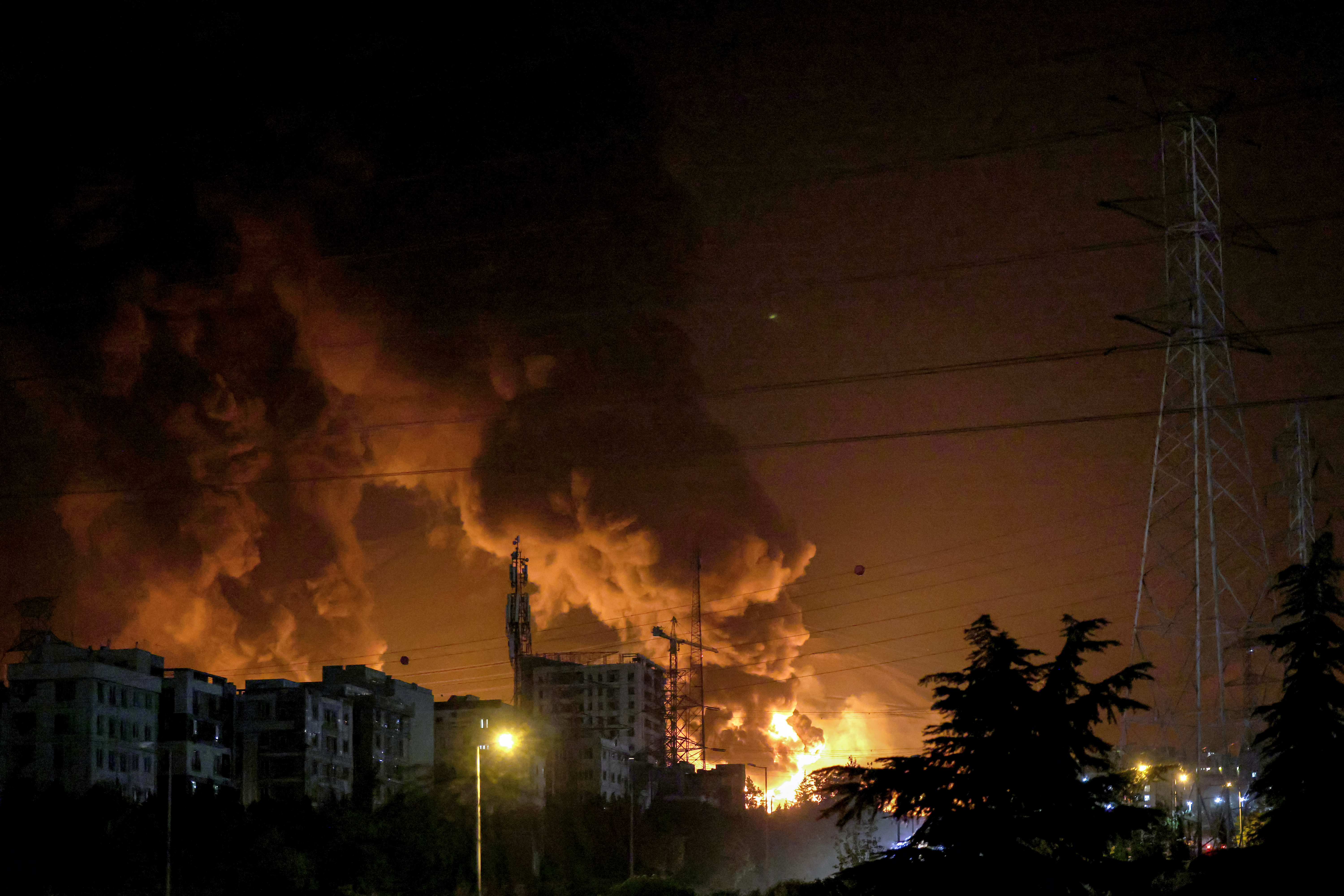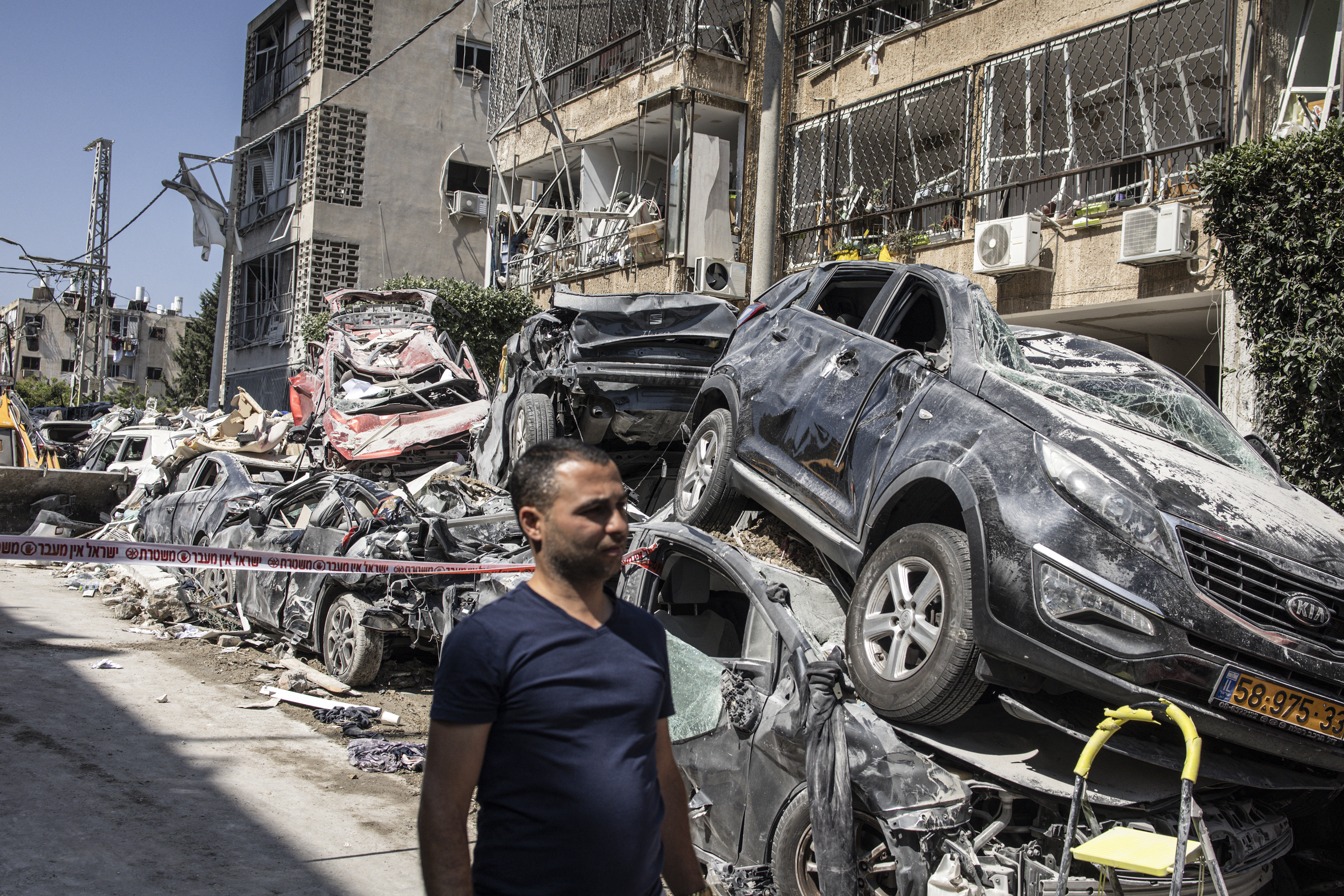
TEHERAN / MUSCAT / JERUSALEM / ANKARA / AMMAN - Iran's Islamic Revolution Guards Corps (IRGC) launched late Saturday night a "large-scale combined offensive operation" against Israel, involving a significant number of missiles and drones, the IRGC's official news outlet Sepah News reported.
This came as Omani Foreign Minister Sayyid Badr bin Hamad bin Hamood Albusaidi said on Saturday that the sixth round of nuclear talks between the United States and Iran, scheduled for Sunday, "will not take place."
The announcement was made amid heightened tensions following Israel's large-scale strikes on Iranian military and nuclear facilities on Friday, which have raised fears of a broader regional escalation.
The IRGC's aerospace division carried out the Saturday night attack, stating it was in response to Israel's "repeated aggressions" against Iran, according to Sepah.
ALSO READ: Putin, Trump discuss Middle East situation over phone
In Israel, a rocket struck a residential building in a northern community, killing one woman and injuring 13 others, according to Magen David Adom (MDA), Israel's national emergency medical service. Several others sustained moderate to light injuries, and four individuals were treated for anxiety, MDA said.
Earlier in the day, MDA reported that at least three people had been killed and 204 others injured since the beginning of the Iranian offensive.

Following the latest wave of attacks, Israel's Home Front Command advised residents outside the Haifa and northern regions that they could exit bomb shelters but should remain close to protected areas.
Also on Saturday, the Israel Defense Forces (IDF) said in a statement that it had killed more than 20 Iranian military commanders since it launched operations against Iran.
The IDF stated that in the opening strike of the operation, Israeli fighter jets, guided by intelligence, killed Gholam-Reza Marhabi, the head of the Iranian army's Intelligence Directorate, and Chief of Staff of the Iranian Armed Forces Mohammad Bagheri.
ALSO READ: Israel's attack on Iran: Nothing good will come of it
"Marhabi played a key role in intelligence evaluations, operational planning, and combat preparations against Israel," the statement read.
According to the IDF, Bagheri oversaw most of Iran's long-range surface-to-surface and cruise missile capabilities that serve as Iran's primary offensive tools against Israel.
He managed Iran's firepower systems and played an active role in the decision-making processes behind Iran's attacks on Israel in April and October 2024, it added.
READ MORE: Israeli strikes on Iran widely condemned
He was killed alongside the air force commander of Iran's Islamic Revolution Guards Corps, Amir Ali Hajizadeh, and several other senior commanders in an underground headquarters in Teheran.
The Israeli military stated that its air defense systems were actively intercepting incoming projectiles, while Israeli air force units were carrying out strikes on military targets in Teheran.
Iran's Ministry of Petroleum confirmed that two oil depots in Teheran were hit during the attacks. Residents reported two powerful explosions in the capital, with blasts felt in both the western and northern districts. The ministry said the situation was "under control."

Israeli airstrikes in Iran's East Azerbaijan province have killed 30 military personnel and one rescue worker, the province's governor, Bahram Sarmast, said on Saturday.
The attacks, which began in the early hours of Friday, have also wounded 55 people across 19 different locations, according to a statement carried by the semi-official Tasnim news agency.
Among the sites hit was Tabriz Airport, a key logistics and transport hub in the provincial capital. Video footage from the scene showed thick black smoke billowing into the sky. Iranian media reported additional damage to the nearby Shahid Fakouri military airbase and parts of the adjacent railway network.

In a phone call with the European Union's foreign policy chief Kaja Kallas on Saturday, Iranian Foreign Minister Seyed Abbas Araghchi stressed that the continuation of indirect negotiations between his country and the United States amid Israel's "continued brutality" is unjustifiable.
Commenting on Iran's decision about taking part in the sixth round of the talks with the United States, Iran's Foreign Ministry spokesman Esmaeil Baghaei said, "Under the present circumstances, our main focus is on confronting the enemy's aggression."
Facilitated by Oman, Iranian and US delegations have so far held five rounds of indirect talks since April on Teheran's nuclear program and the lifting of US sanctions -- three in Muscat and two in Rome.
READ MORE: Iran vows to press ahead with uranium enrichment despite IAEA censure
In Ankara, Turkish President Recep Tayyip Erdogan spoke by phone with US President Donald Trump on Saturday to discuss the escalating conflict between Israel and Iran, as well as broader regional and global issues, according to a statement from Erdogan's office.
"While underlining that Türkiye is closely monitoring the tension between Iran and Israel, President Erdogan noted that Türkiye considers the ongoing nuclear negotiations the only way to resolve the dispute," the statement said.
He expressed Türkiye's support for the United States' stance on continuing nuclear talks and reaffirmed Ankara's commitment to promoting diplomatic efforts to prevent further escalation.
Meanwhile, Jordan reopened its airspace to civilian flights on Sunday morning after multiple temporary closures over the weekend due to the ongoing military escalation between Israel and Iran, the Jordanian Civil Aviation Regulatory Commission said.


